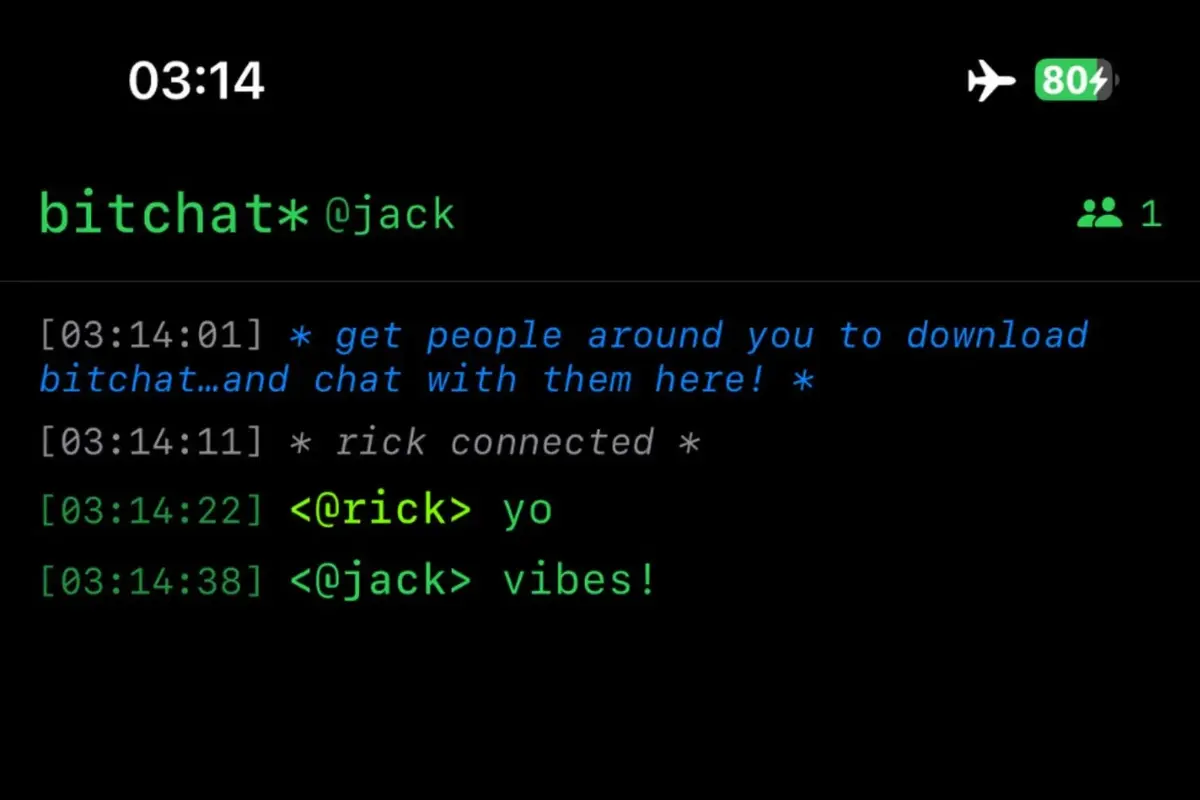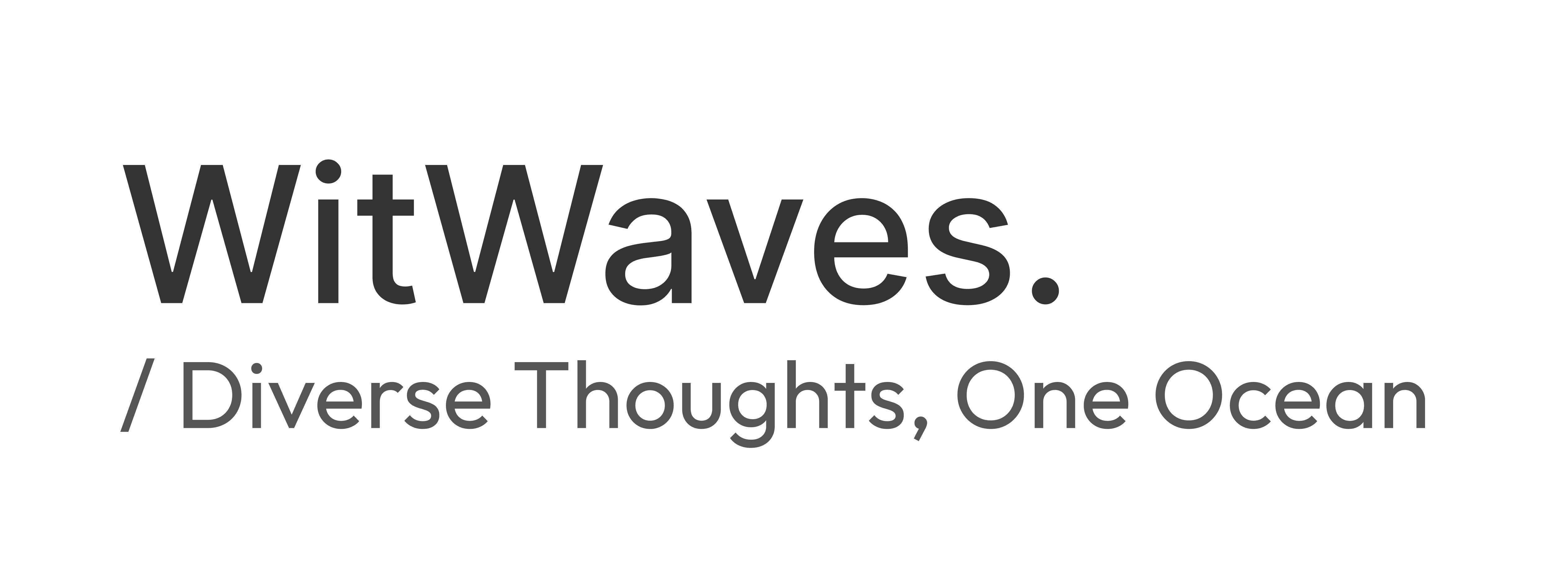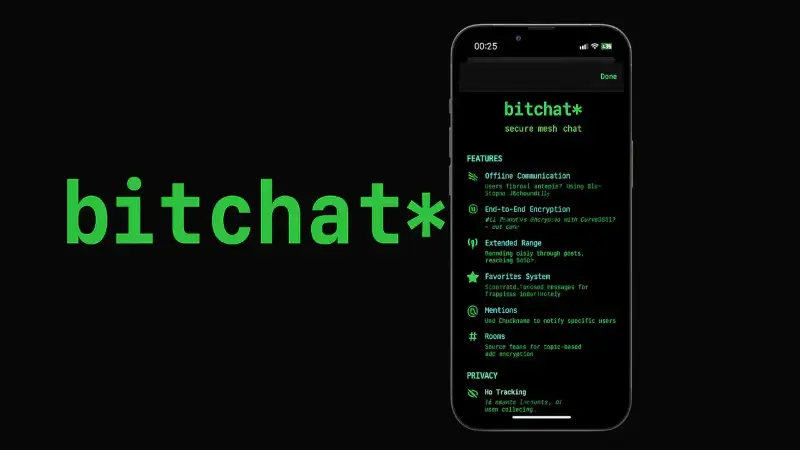In July 2025, Jack Dorsey officially launched the beta version of Bitchat, a groundbreaking messaging app that operates entirely offline, marking a significant milestone in the evolution of decentralized communication technology. This project, initially described by Dorsey as a “weekend project,” embodies a radical departure from conventional internet-dependent messaging services by utilizing Bluetooth Low Energy (BLE) mesh networks to enable peer-to-peer communication without relying on cellular data, Wi-Fi, or central servers.
What Is Bitchat?

Bitchat is a decentralized messaging application that allows users to send encrypted messages directly from one device to another, leveraging BLE technology to create a mesh network. Each participating phone acts as a relay node, allowing messages to hop between devices to reach recipients beyond the standard Bluetooth range of about 100 meters. In dense user environments, this mesh can extend communication reach significantly.
Key Features and How It Works
- No Internet Required: Functions completely offline, ideal for areas with limited internet access, during network outages, or in remote locations.
- Mesh Networking: Messages travel through a network of nearby devices, extending reach without a centralized infrastructure.
- Truly Decentralized: No central servers store messages. Data is ephemeral and remains solely on users’ devices.
- Anonymous and Private: Users do not need phone numbers, emails, or accounts. End-to-end encryption, based on the Noise Protocol Framework, secures conversations and ensures privacy and censorship resistance.
- Store and Forward: If a recipient is offline or out of range, messages are temporarily stored within the mesh network and delivered when connectivity is restored.
- Available via App Stores: Initially released in limited beta on Apple’s TestFlight, now available on the App Store, with Android availability anticipated.
The Broader Vision: Web5
Bitchat is more than just an app, it exemplifies Jack Dorsey’s broader vision of the internet’s future, known as Web5. Developed by TBD, a division of Dorsey’s company Block, Web5 aims to address the shortcomings of the current centralized Web2 and the blockchain-centric Web3 by returning data ownership and digital identity control back to individuals.
Web5 is built around two core pillars:
- Decentralized Identifiers (DIDs): Self-owned, universal digital identities that users create and control independently of corporations or governments.
- Decentralized Web Nodes (DWNs): Personal, secure data stores where users centralize their information, granting apps permission-based access while maintaining ownership and privacy.
How Bitchat Embodies Web5 Principles
Though Bitchat currently utilizes Bluetooth mesh technology rather than the full Web5 architecture, it perfectly illustrates Web5 values:
- User Sovereignty: No corporate gatekeepers or permissions needed to use the app.
- Data Control: Messages live on devices, not company servers.
- Censorship Resistance: Without central control points, it is highly resistant to shutdowns or surveillance efforts.
Relationship with Bluesky
It is crucial to distinguish Bitchat and Web5 from Bluesky, another decentralized initiative started by Dorsey, which focuses on social media. Unlike Bluesky, which operates independently and focuses on a decentralized social media protocol (the AT Protocol), Bitchat/Web5’s ambition extends beyond social media, targeting comprehensive decentralization of digital identity and data control across the internet ecosystem.
Potential Impact and Challenges
Bitchat’s potential to revolutionize communication is significant:
- Emergency and Disaster Communications: Keeps lines open when traditional networks fail.
- Privacy Advocacy: Offers a new level of encryption and anonymity.
- Digital Sovereignty: Empowers individuals against centralized data monopolies.
- New Financial Innovations: The mesh network concept could eventually support offline Bitcoin transactions.
However, challenges remain, including mesh network dependency on adopter density, battery consumption due to Bluetooth use, security audit needs, and navigating regulatory environments.
Conclusion
Jack Dorsey’s Bitchat is a pioneering real-world application of decentralized, offline messaging technology that signals a major shift in how communication and digital identity could evolve. As a practical embodiment of the Web5 vision, Bitchat lays the foundation for a future internet where individuals reclaim control over their data and connectivity, setting the stage for a more private, resilient, and user-empowered digital world.


Discussion
Start the conversation
No comments yet
Be the first to share your thoughts on this article. Your insights could spark an interesting discussion!